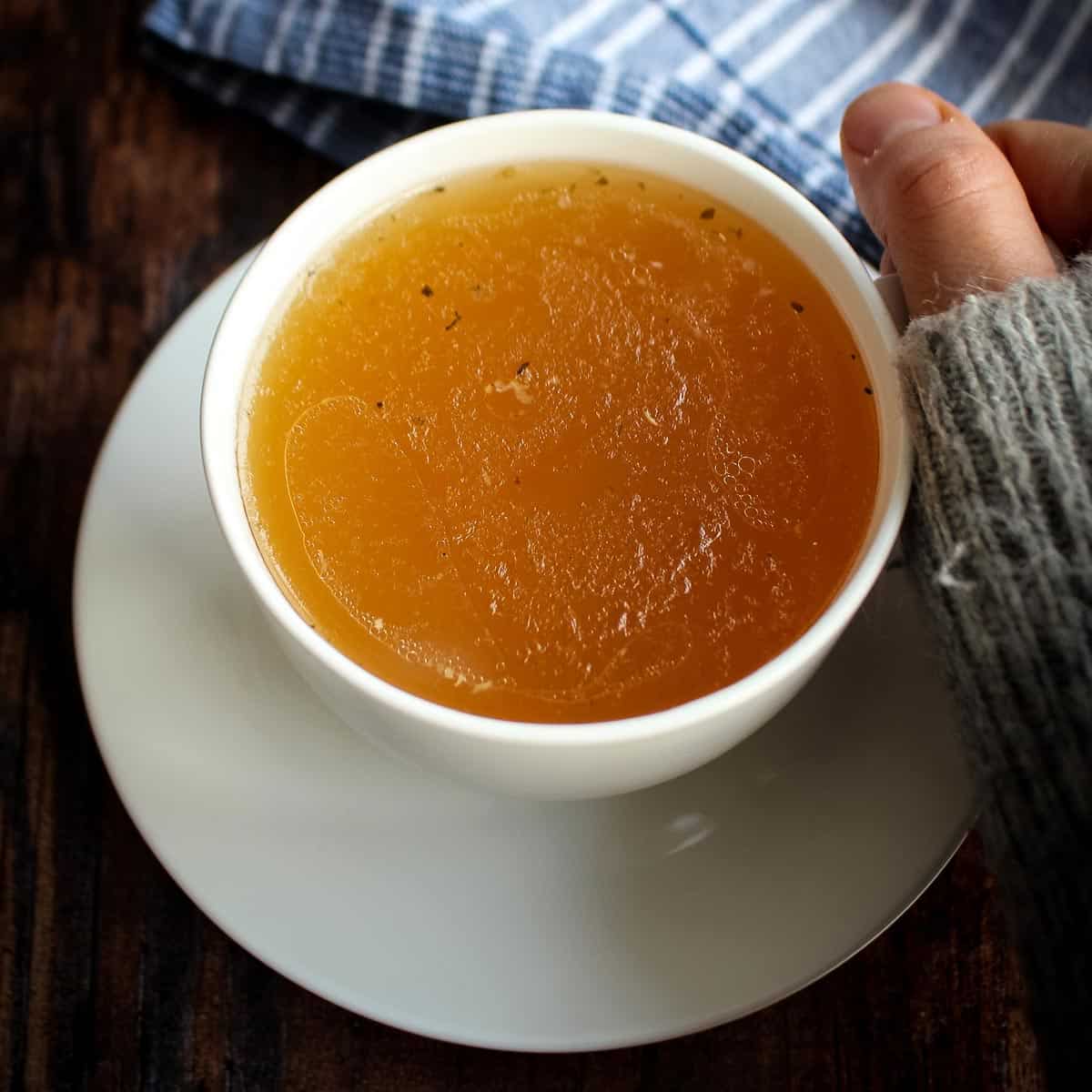organic bone broth: Why It’s the Purest Option
organic bone broth: Why It’s the Purest Option
Blog Article
The aImportance of Healthy Food: Why Bone Broth Is a Great Option for Babies
When it concerns your baby's nourishment, every selection issues. Bone broth stands apart as a nutrient-dense alternative, offering essential nutrients that sustain growth and growth. Its abundant make-up not just help food digestion but additionally increases the immune system. Recognizing just how to incorporate this flexible food right into your infant's diet plan can establish the stage for healthy eating routines. So, what are the ideal means to present bone broth to your youngster?
Nutritional Conveniences of Bone Broth for Infants
When you introduce bone broth to your infant's diet, you're offering a nutrient-dense food that offers various health benefits. Loaded with necessary minerals and vitamins, bone broth includes calcium, magnesium, and phosphorus, which support your child's growing bones. It's likewise abundant in collagen, aiding in the growth of healthy and balanced skin, joints, and connective cells.
Additionally, bone broth is an exceptional source of amino acids like glycine and proline, which play a significant duty in total growth and muscle mass advancement. These nutrients help advertise a solid body immune system, establishing a strong foundation for your child's wellness.
In addition, bone broth is simple to digest, making it a mild option for your kid. By incorporating this wholesome food into their meals, you're ensuring they get important nutrients essential for their overall health. So, go in advance and make bone broth a staple in your baby's diet regimen!
How Bone Broth Supports Food Digestion
Bone broth is loaded with necessary nutrients that can truly profit your infant's food digestion. It advertises digestive tract health and assists with nutrient absorption, making it a terrific addition to their diet regimen. By incorporating bone broth, you're setting the phase for a much healthier digestion system.
Nutrient-Rich Composition
One of the most nutrient-rich foods you can introduce to your baby's diet regimen is bone broth, which is loaded with essential minerals and amino acids that support healthy and balanced food digestion. Rich in collagen, bone broth helps strengthen your baby's intestine cellular lining, making it simpler for their body to absorb nutrients. By incorporating bone broth into your infant's meals, you're giving them a wholesome food that supports their digestive system efficiently.
Promotes Intestine Health And Wellness
As you present bone broth into your infant's diet regimen, you'll find it not just nourishes however also advertises intestine health and wellness successfully. Rich in gelatin, bone broth aids relieve the gastrointestinal system, reducing inflammation and sustaining a healthy intestine lining. Furthermore, the amino acids found in bone broth, such as glycine, help in food digestion and can assist stop common tummy troubles.
Aids Nutrient Absorption
Presenting bone broth not only sustains intestine wellness however also plays a significant role in assisting nutrition absorption. When you give your infant bone broth, you're providing an abundant source of minerals and amino acids that enhance their gastrointestinal processes. The jelly in bone broth helps to relieve the intestine lining, boosting its ability to absorb important nutrients.
Reinforcing the Body Immune System With Bone Broth

By including bone broth right into your child's diet plan, you're providing a natural source of nutrition that advertises wellness. Take into consideration making bone broth a staple in your infant's meals, as it can play a vital function in their immune health and growth.
Easy Ways to Integrate Bone Broth Into Child's Diet plan
Incorporating bone broth right into your child's diet plan can be simple and gratifying. Start by blending a little quantity of bone broth into pureed veggies or fruits. This adds taste and nutrients without overwhelming your child. You can additionally make use of bone broth as a base for soups or stews that you get ready for the family, guaranteeing your child gets a taste of delicious, healthy and balanced meals.
If your baby enjoys grains, think about cooking rice or quinoa in bone broth instead of water for extra sustenance. These approaches will assist your infant enjoy the benefits of bone broth effortlessly!
Homemade vs. Store-Bought Bone Broth: What to Select
Which is far better for your child: homemade or store-bought bone broth? Self-made bone broth provides you total control over the components. You can select high-grade bones, natural veggies, and natural herbs, ensuring your baby gets the most nutrients without ingredients or chemicals. Plus, making it at home can be a gratifying experience, enabling you to bond with your baby while preparing wholesome food.
On the other hand, store-bought options are hassle-free and save you time. Nevertheless, they commonly consist of preservatives and might not match the deepness of taste and nourishment you obtain from homemade broth. If you decide for store-bought, seek brands that are natural and complimentary from additives.
Ultimately, if you have the moment and resources, homemade bone broth is the superior choice for your child's wellness. If you're short in a timely manner, pick a top quality store-bought option as a backup.
Age-Appropriate Bone Broth Serving Ideas
As your infant expands, it is necessary to customize bone broth serving pointers to their developmental phase. For babies around 6 months, begin with a few does of watered down bone broth. Mix it with water or bust milk to make it less complicated for them to absorb. As they become accustomed to tastes, you can gradually introduce thicker broth by reducing the dilution.
By the time your little one is around a year old, consider providing bone broth as a standalone drink or mixing it right into soups and stews. Simply make certain to maintain the broth low in sodium.
Various Other Healthy And Balanced Foods to Couple With Bone Broth for Babies
When you're seeking to enhance the nutritional value of bone broth for your infant, think about pairing it with nutrient-dense vegetables like carrots and spinach. Whole grain options, such as quinoa or brown rice, can also include appearance and fiber. In addition, including healthy and balanced protein resources like shredded chicken or lentils will certainly complete the dish well.

Nutrient-Dense Vegetables
Nutrient-dense veggies are a wonderful addition to bone broth for babies, enhancing both taste and nourishment. Incorporating veggies like carrots, spinach, and pleasant potatoes can improve the vitamin and mineral web content of your broth.
You can conveniently blend these veggies right into the broth where to get bone broth or serve them as soft, cooked items together with it. This not only introduces brand-new tastes but additionally urges your kid to take pleasure in a range of nutrients. By coupling nutrient-dense vegetables with redirected here bone broth, you're laying the foundation for a healthy diet plan right from the beginning.
Whole Grain Options

Healthy And Balanced Healthy Protein Sources
Bone broth pairs wonderfully with various healthy and balanced protein sources, even more enhancing your infant's diet regimen. Attempt adding soft, cooked lentils; they're nutrient-dense and jam-packed with protein. You can likewise mix in shredded chicken or turkey, which are very easy for your youngster to digest. If you're seeking plant-based alternatives, think about mashed tofu or pureed chickpeas-- both give outstanding healthy protein without frustrating tastes. Eggs, when presented securely, are one more excellent choice; they're flexible and loaded with nutrients. Eventually, mixing in some well-cooked quinoa can include a great structure and extra protein. By integrating these healthy and balanced protein sources with bone broth, you're providing your infant a balanced, beneficial dish that supports their growth and growth.
Frequently Asked Inquiries
Can Bone Broth Reason Sensitive Responses in Newborns?
Yes, bone broth can cause allergies in infants, especially if they're delicate to certain components. Constantly consult your doctor before introducing new foods and screen for any kind of indicators of allergic reactions after feeding.
Just How Should Bone Broth Be Kept for Babies?
You should save bone broth in airtight containers, either in the refrigerator for up to a week or in the fridge freezer for approximately 3 months. bone broth for infants. Constantly thaw it appropriately prior to serving to your baby
Is It Safe to Give Bone Broth to Premature Babies?
It's necessary to consult your pediatrician prior to presenting bone broth to early babies. They'll assess your infant's specific wellness needs and ensure it's risk-free, considering their distinct nutritional requirements and developing phase. Always prioritize professional recommendations.
What Are the Signs of Intolerance to Bone Broth in Infants?
When presenting bone broth, expect signs like fussiness, breakout, diarrhea, or vomiting. If your infant shows any one of these responses, it's finest to consult a doctor prior to proceeding to supply it.
Can Bone Broth Be Used as a Meal Substitute for Infants?
No, you shouldn't utilize bone broth as a meal substitute find more information for babies. It lacks vital nutrients needed for their growth. Instead, include it into their diet plan alongside balanced dishes for included nutrition and taste.
Report this page